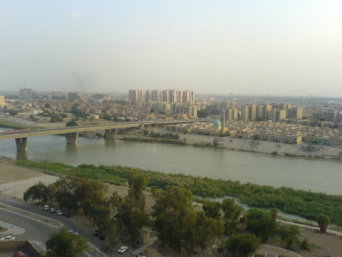- About
- Topics
- Picks
- Audio
- Story
- In-Depth
- Opinion
- News
- Donate
- Signup for our newsletterOur Editors' Best Picks.Send
Read, Debate: Engage.
Three countries in just one week have experienced horrific mass slaughters. 143 people were killed in an explosion in Baghdad – an act for which ISIS claimed responsibility – just a week after Iraqi state forces, supported by American airstrikes took back the city of Fallujah from Isis. The death toll from the Baghdad bombing, the worst in the country since 2007, is expected to rise.
In Dhaka, Bangladesh, a couple of days earlier, a gunman stormed a restaurant and killed policemen and hostages. Meanwhile in Istanbul, the city’s main airport was attacked and 40 people died instantly, with many more injured. ISIS have claimed responsibility for the former, not for the latter.
The scar that runs across the Middle East and into Asia is deep, and terrifying. The structural arrangement of ISIS, analysed by military experts, is often said to be vulnerable; Unlike traditional terrorist groups relying on guerilla tactics, cellular structures and underground networks to carry out their attacks, ISIS have a more visible military style structure, with direct hierarchies, and they have carried out what some experts have called traditional military campaigns. As such, they have been more frightening to the wider public, but also more containable – part of Obama’s wider strategy against them.
However, with the series of attacks against innocents across an entire continent, with some claimed, and some not (the proximity of the attacks in Istanbul, however, create a mental picture of terror, even if another group was responsible for that attack) can make the entire world seem under attack – and one terrorist group seem invulnerable. However, it may be likely that this shift in tactics to rapid terrorist responses in both Iraq and Bangladesh represents a kind of lashing out of the group – a kind of frantic attack to compensate for loss and weakness. It’s something we may have already seen in Brussels, earlier this year.
However, the media and social media commentary has been predictably thin on the ground: When Westerners are not the victims, the world doesn’t seem to care as much. The underlying thought process there is one we can all be prone to – where there’s not an event decorated as a tragedy, we can all fail to see it as one. Let there be no mistake – the events in Iraq, Bangladesh and Turkey are tragedies – of no less worth than events elsewhere. To see them as something else would be a failure of compassion. That being said, despite the recent spate of attacks, we should try to take heart as much as we can – the world can look like it’s killing itself sometimes – but in this case, it may just be reason for hope that the perpetrators are losing.
